Introduction
The Government of India (GoI) has set for itself a target of decreasing emissions intensity of its GDP by 45% in 2030 (from 2005 levels). At present, the road transportation sector accounts for 12% of India’s energy-related CO2 emissions. With the growing demand for private mobility and goods transportation, energy consumption and CO2 emissions from road transport is likely to double by 2050.
The Government of India has launched several initiatives such as the Faster Adoption and Manufacturing of Electric Vehicles (FAME), Production Linked Incentives (PLI), the National Electric Bus Program (NEBP), and PM e-Bus Sewa for the deployment of 50,000 electric buses, demonstrating significant strides in e-mobility.
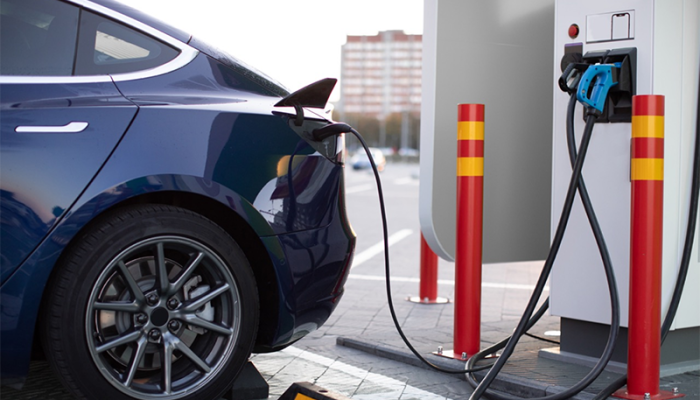
Challenges remain, including the emerging nature of the sector, fast-paced technological advancements, lack of a secondary market, limited financing options for end-users, and insufficient charging infrastructure. SAREP is actively working with public and private sector entities through its initiatives to address these issues and support India’s e-mobility goals.
The South Asian countries, apart from India, have also pledged to transition towards e-mobility.
The major targets announced in e-mobility are as follows:

- GoI has pledged that by 2030, 30% of all new vehicle sales in India will be electric
- GHG emissions reduction by 4% in the transport sector through e-mobility and other measures
- EV Passenger cars: 20% by 2025 and 50% by 2030
- E-Buses: 10% by 2025, 50% by 2030
- Medium vehicles/trucks: 5% by 2025, 20% by 2030
- Heavy vehicles/trucks: 5% by 2030
- EV Private vehicle sales – 25% by 2025 and 90% by 2030
- 4W Passenger vehicle sales – 20% by 2025 and 60% by 2030
- Develop 200 km of electric rail network
- Increase the market share of EVs to at least 15% of all registered vehicles by 2030
- Achieve Net-zero emissions by 2030
Key Interventions
-
 Accelerating e-Bus Deployment
Accelerating e-Bus Deployment -
 Deployment of Electric Vehicle Charging Infrastructure (EVCI)
Deployment of Electric Vehicle Charging Infrastructure (EVCI) -
 Electrification of Four-Wheeler Fleets
Electrification of Four-Wheeler Fleets -
 Access to Finance
Access to Finance -
 Policy Frameworks and Capacity Building
Policy Frameworks and Capacity Building
- Developed procurement bid documents/contracts for PM’s eBus Sewa
- Facilitated stakeholder consultations for developing innovative business models for scaling up e-Bus deployment
- Facilitating export of ‘Make in India’ electric buses
- Conducted Impact assessment of e-Bus transition
- US -India Payment Security Mechanism
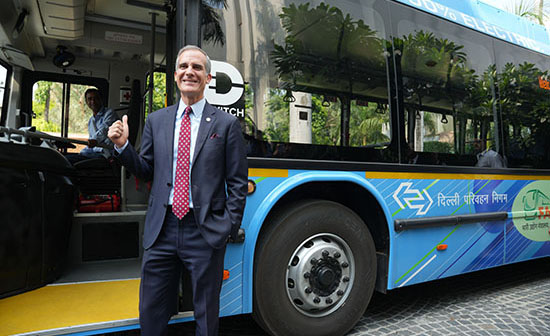
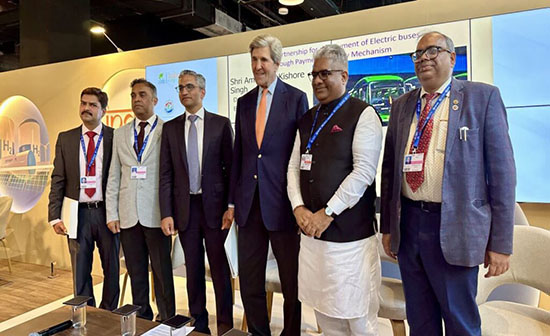
- Designing and implementing innovative business models such as ‘EV charging as a service ’
- Implementing the ‘Managed Services Partner’ model Supporting the development of public charging stations at railway stations in India & Bhutan
- Establishing renewable energy-based charging infrastructure in the Andaman & Nicobar Islands
- Developing the Charging Station Assessment Tool (CSAT) to identify priority locations for setting up charging infrastructure
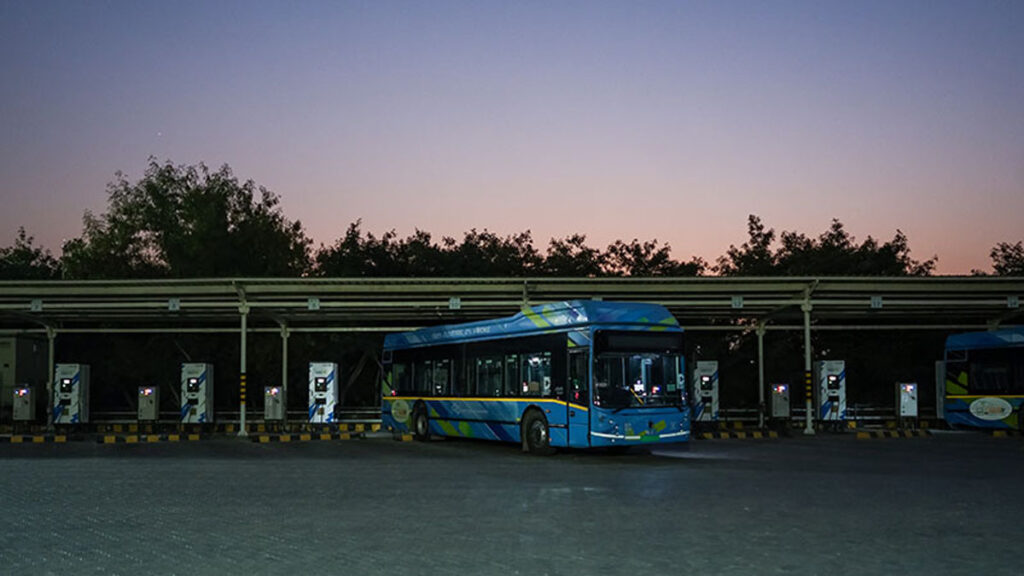
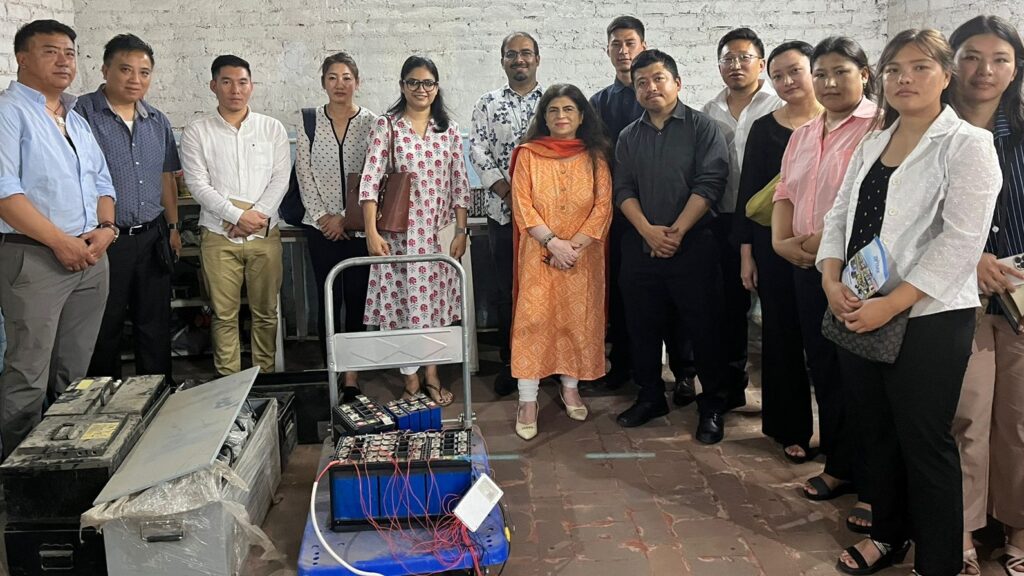
- Developing cost economics, impact assessment and business case for enabling the transition to electric 4 wheelers


- Supporting capital raise transactions
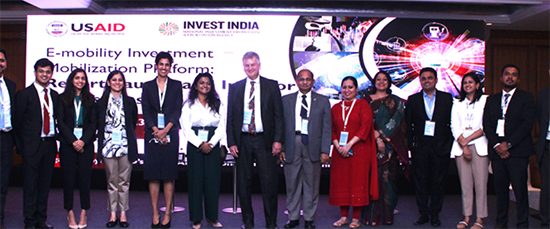
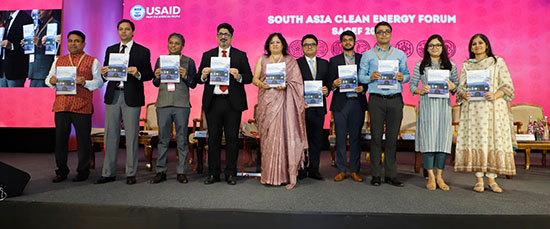
- Developing a Sustainable Transportation Roadmap for Bhutan
- Organizing study trips on e-Mobility for South Asian countries
- Developing a knowledge series for South Asian utilities on EV integration


Key Achievements
Report on e-Mobility Investment Landscape in partnership with Invest India
A knowledge exchange visit was organized for Bhutanese government officials to gain insights into India's electric vehicle (EV) ecosystem. Use of Charging Station Assessment Tool (CSAT) to identify priority locations for setting up EV charging infrastructure in Delhi
Developed EV Technical Handbook for charging in partnership with Power Sector Skill Council (PSSC)


